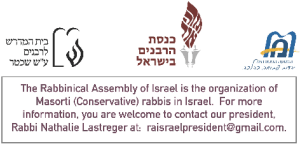
![]()
… or as Robert Alter renders the clause, “And you shall be very watchful for yourselves” (Deut. 4:15). With these words Moses warns the Israelites against worshipping idols, the work of human hands.
Over time, the Sages broadened the mitzvah of self-care, which may be an interesting way of applying the idea of humankind’s creation in God’s image. If one’s nefesh — one’s life force, something akin to soul—is a spark of supernal divinity, it should certainly be protected from all harm. Echoes of this idea can be found in Aristotle. Socrates complains that people invest their precious wealth on jewelry and physical appurtenances — “things of stone and wood,” in his formulation—but when it comes to education and enlightenment, which nurture the most precious thing a person has, they skimp.
“Yourselves,” “Your nefashot” in the plural, is what the verse says; not only your own individual self.
The Jewish people has a social responsibility to “be very watchful” regarding human beings’ lives, both one’s own and those of others around us. As Naomi Shemer wrote, “Guard this home, God, from misery, sudden fear, and war” (in Al Kol Eileh).
Pay careful attention to those coming home from this war, both civilians and soldiers. “Take exceeding care” for them.
![]()
